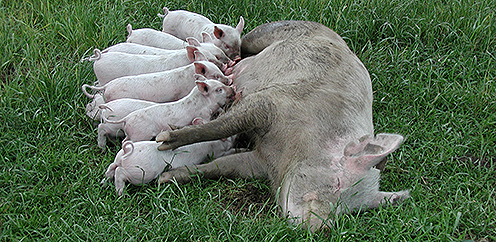Antibiotic resistance

The use of antibiotics is a necessary part of modern, intensive livestock production, but antibiotics in livestock production must be applied with the least possible risk of affecting human health, and in ways that aim to limit the development and spread of antibiotic resistance. This area attracts considerable political attention; it is often the subject of public debate and is thus a central element in the scientific advice handled by the Danish Veterinary Consortium.
The Consortium's division of the microbiological field between the School of Veterinary Medicine and Animal Science (Vetschool) and Statens Serum Institut provides an outstanding opportunity to advise the Ministry of Environment and Food on the use of antibiotics and the issue of antibiotic resistance in animals from a One-Health approach with human health at the centre.
The consultancy services are based in strong academic environments that continuously explore the consequences of antibiotic consumption by domestic animals, and analyze ways to minimize resistance problems. The Consortium also has the day-to-day responsibility for scientific advice, research and teaching on antibiotic resistance in humans. The services can cover all aspects of the use of antibiotics for animals, e.g.:
- Best choice of type of antibiotics for the treatment of specific diseases in domestic animals, taking into account treatment effect and risk of resistance development
- National programs to reduce the use of antibiotics in animals or to change the preference of antibiotics by veterinarians
- Approaches to limit the presence of antibiotic-resistant bacteria in livestock, and to reduce the spread of resistance from animals to humans
- Approaches to avoid treatment of animals with antibiotics, focusing on the promotion of healthy animals and good infection prevention
- Optimized methods to keep track of antibiotic consumption and the development of resistance in animals in Denmark
